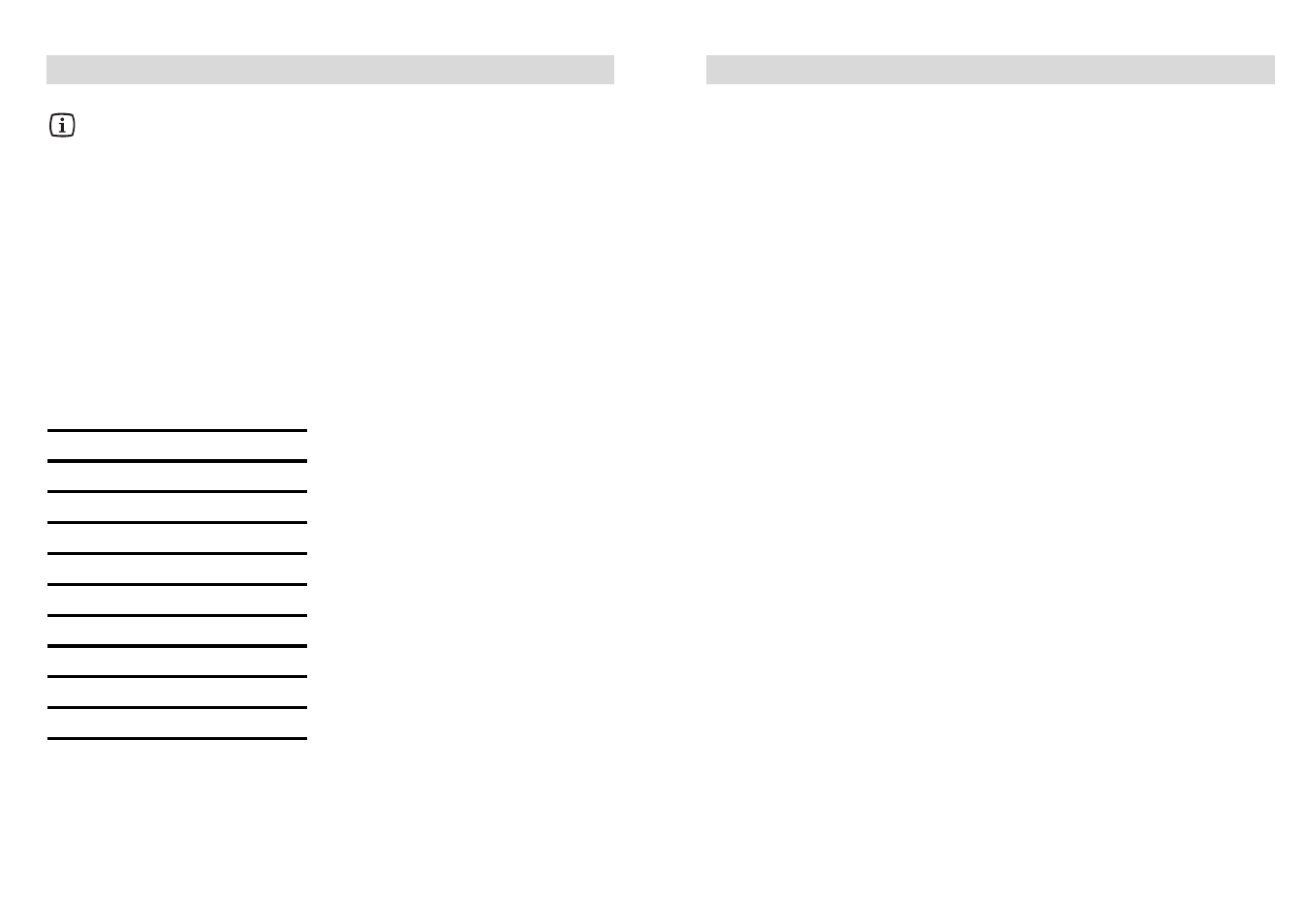DE DIETRICH WBD1211 User Manual
Page 8

• Only wool marked “Pure New Wool -
washable, preshrunk” can be
washed in the machine using the
wool programme; other types of
wool should be washed by hand or
dry cleaned.
• If you have used the machine to
wash, rinse or spin only non-colour
fast garments, there may be dye left
in the sump. To ensure any
subsequent wash is not
contaminated with the dye, select
and carry out a rinse and spin
programme, without any garments,
to ensure that any dye is removed
from the sump.
Removing stains
Stubborn stains may not be removed
by just water and detergent. It is
therefore advisable to treat them prior
to washing.
Blood: treat fresh stains with cold
water. For dried stains, soak overnight
in water with a special detergent then
rub in the soap and water.
Oil based paint: moisten with
benzine stain remover, lay the
garment on a soft cloth and dab the
stain; treat several times.
Dried grease stains: moisten with
turpentine, lay the garment on a soft
surface and dab the stain with the
fingertips and a cotton cloth.
Rust: oxalic acid dissolved in hot
water or a rust removing product used
cold. Be careful with rust stains which
are not recent since the cellulose
structure will already have been
damaged and the fabric tends to hole.
Mould stains: treat with bleach, rinse
well (whites and fast coloureds only).
Grass: soap lightly and treat with
bleach (whites and fast coloureds
only).
Ball point pen and glue: moisten
with acetone (*), lay the garment on a
soft cloth and dab the stain.
Lipstick: moisten with acetone as
above, then treat stains with
methylated spirits. Remove any
residual marks from white fabrics with
bleach.
Red wine: soak in water and
detergent, rinse and treat with acetic
or citric acid, then rinse. Treat any
residual marks with bleach.
Ink: depending on the type of ink,
moisten the fabric first with acetone
(*), then with acetic acid; treat any
residual marks on white fabrics with
bleach and then rinse thoroughly.
Tar stains: first treat with stain
remover, methylated spirits or
benzine, then rub with detergent
paste.
(*) do not use acetone on artificial
silk.
15
Washing Hints
Do NOT overload the machine.
Recommended loads are indicated in
the programme charts.
General rules:
Cotton, linen: drum full but not too
tightly packed;
Synthetics: drum no more than half
full;
Delicate fabrics and woollens: drum
no more than one third full.
The average weights of the most
common items are listed below as a
guide:
Sheet 700-1000
g
Pillow case
100-200 g
Tablecloth 400-500
g
Serviette 50-100
g
Tea towel
70-120 g
Linen hand towel
100-150 g
Towelling hand towel
150-250 g
Towelling bath towel
700-1000 g
Bath robe
1000-1500 g
Man’s shirt
200-300 g
Apron 150-200
g
• Load the laundry loosely alternating
large items with small ones.
• Sort the laundry according to the
type of fabric, colour-fastness and
how dirty it is.
• Avoid washing unhemmed or torn
items as they may unravel.
• Before washing, empty all
pockets of small objects which
may have been left inside (coins,
keys, screws etc). as these could
damage the drain pump.
• When washing curtains, remove the
hooks.
• Close poppers and zips and fasten
loose buttons.
• It is essential to wash new coloured
items separately when washing for
the first time.
• When washing fabrics requiring
different wash temperatures
together, always select the lowest
temperature.
• White items should not be washed
with coloured items.
• Very small items (handkerchiefs,
ribbons, socks etc) should be
washed in a washing bag or a pillow
case as it is possible for such items
to slip down between the tub and
the drum.
• Some stains such as fruit, wine,
grass, rust etc. are difficult to
remove and should be treated
before washing with specific
products, which can be found in
most household shops. In some
cases it may help to soak the stain
before washing with a special pre-
soak product or biological detergent.
14
Washing Hints
Washing Hints
